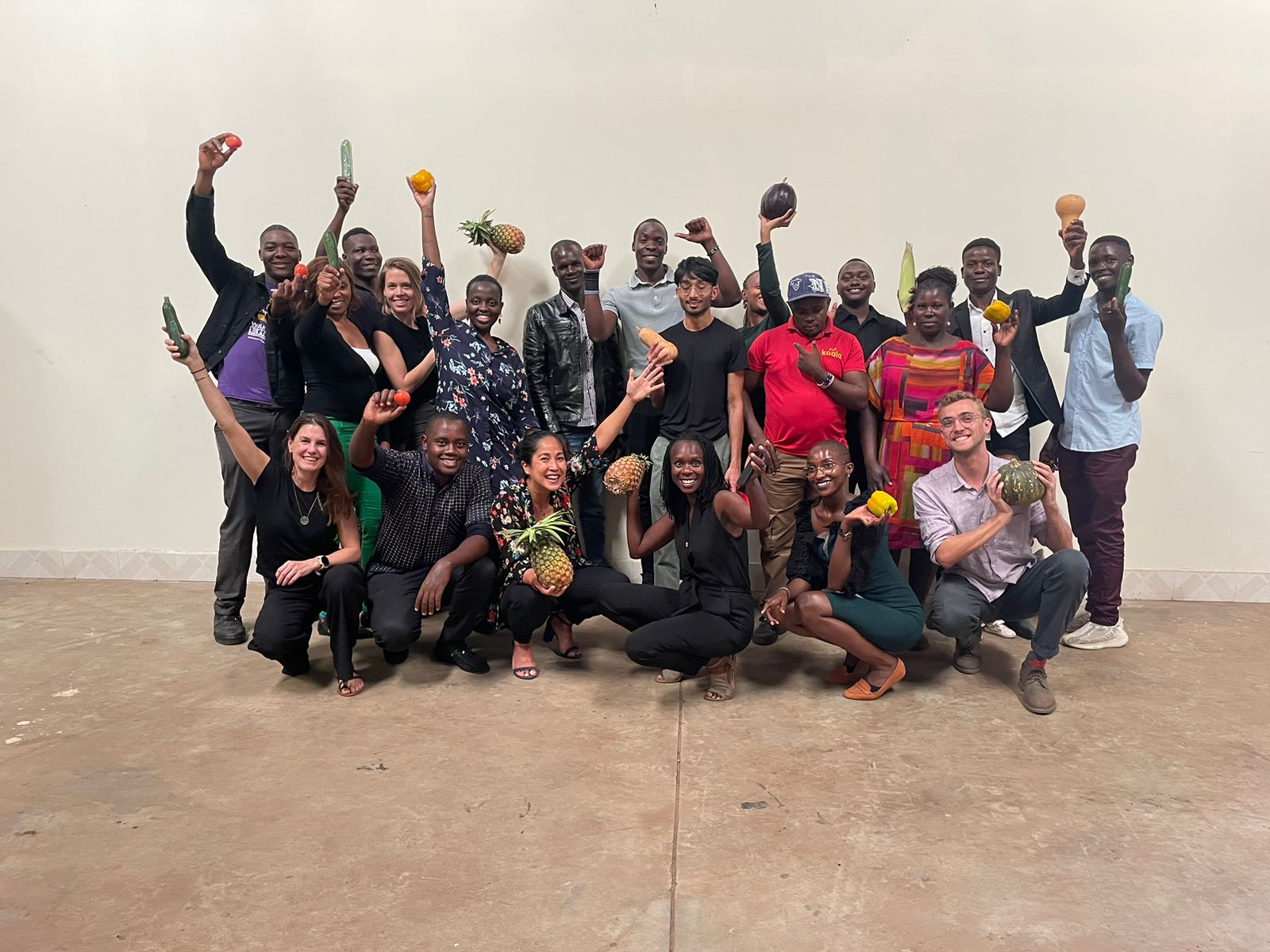Access to finance is the biggest constraint to small business growth—and the economic development potential they can unlock—in emerging markets. Africa’s young but growing pipeline of local fund managers are working to fill the small business capital gap left by banks, private equity funds and microfinance institutions. But they too struggle to raise capital. One of their biggest constraints: lack of conventional track records.
In response, fund managers are finding alternative ways to demonstrate their investment competence as a means to raising capital. Some are by reframing relevant “adjacent” experience. Others are building pipeline through tangential services and programs. Some are building investment portfolios in stages. Others are complementing their investment decision-making with external investment skills.
Reframing experience
Africa’s nascent small business investing sector is made up of hundreds of local fund managers. The majority are managing funds for the first time, and thus do not conform to traditional institutional investors’ requirements around track record by having direct investment experience over the full seven to 10-year lifecycle of a fund and with evidence of positive financial performance.
Managers like Selma Ribica from First Circle Capital in Morocco are drawing from past experience of building and investing in businesses to make their investment case.
The biggest risk associated with small business investment is the inherent business risk. It stands to reason that those who have grown businesses in tough local environments would bring significant value to an investment process—more so than in larger, later-stage enterprise investing.
Indeed, one of the most common routes to fund management is through business management experience. About 90% of fund management principals in this market segment have been an entrepreneur, CEO or CFO. Many step into investing as angel investors.
Ribica started out in African fintech with M-Pesa in 2012 before moving on to start her own business. She says she has achieved about a 4x multiple in her personal capacity as founder and a 35x multiple on invested capital as an angel investor, 30% of which is realized. She is currently raising a $30 million fund, First Circle Capital, to invest in tech businesses in North Africa where she is based.
Other managers are leveraging business consulting experience to prove their fund management capabilities. Secha Capital’s Brendan Mullen comes from a management consulting background, which informed Secha’s operator-investor model investing in businesses across Southern Africa. Mullen sources young talent from prestigious management consulting firms who then join portfolio companies for up to a year, executing a tailored toolkit of transformative interventions.
Secha deployed $5 million through this model with its first fund. It’s now raising a $50 million second fund, doubling down on post investment value add strategy.
Pipelines, networks and value chains
Most emerging fund managers are highly entrepreneurial, tuned into market failures and wired to find solutions. For some, their journeys into fund management start by trying to address other market gaps, like diverse talent.
Five35 Ventures’ Hema Vallabh has been working for nearly 20 years to support women in STEM across the continent through co-working hubs and an accelerator program, called WomHub. With Five35 Ventures, she’s tackling the bottleneck: female entrepreneurs in STEM’s lack of access to capital.
Since its first close, Five35 Ventures has made 18 investments, largely because of its exceptional deal access, shared resources through partnerships with other funds, like Launch Africa, and the economies of scale that come with being an ecosystem builder.
Women’s Investment Club Senegal, an angel investing membership group of about 100 women, is investing in promising women-led businesses in Senegal. To accelerate the pipeline of investable opportunities, the adjacent WIC Académie program provides pre- and post-investment support to women-led businesses through a highly-experienced mentor group. A bigger investment fund, WIC Capital, is drawing from both the Academie and the angel network to further support Senegal’s women-led businesses.
About half of the managers in CFF’s network access pipeline from their own accelerator and/or development programs. These programs are mostly donor and/or corporate funded, allowing fund managers to provide technical assistance without using their management fees. Indeed, pre-investment technical assistance in particular, is one of key value-adds of fund managers, considering the low level of formalization of Africa’s small businesses.
Phased approach
Fund managers are using a phased approach to prove to investors that they can find the right businesses, secure deals, and structure investments over a three to five year period of time. There are several strategies being deployed:
Warehousing capital enables fund managers to invest in advance of a first close. Funding for this type of investment comes from a small number of limited partners or directly from managers’ own balance sheets.Some existing finance providers have included DGGF Seed Capital and Business Development Facility and Mastercard Foundation offering a range of investment terms to emerging managers they support.
Amam Ventures‘ team was able to make investments using a $3 million launch facility while fundraising for a $30 million closed-ended fund. Amam’s Tamara Abdel-Jaber says soft funding from DGGF and the Innovative Startups and SMEs Fund was instrumental for the team to “build track record and test their investment processes and instruments which were new to the MENA market, while convincing others to match”.
Lisa Thomas from Samata Capital, who is raising a $50 million equity fund, has made four investments in advance of first close, leading a syndicate of local and international investors in each of the deals.
Investors generally encourage early exits from warehoused deals so fund managers can demonstrate competency in that part of the investment cycle.
Open-ended structures is another strategy, allowing fund managers to start investing as soon as money is raised. This means they can also earn fees and secure pipeline opportunities. About 60% of funds in CFF’s network are structured as open-ended.
Iungo Capital operates an open ended mezzanine debt fund in Uganda, Kenya, Rwanda and Tanzania. Co-founder Roeland Donckers notes that different investors have different thresholds for track record when it comes to deal volume and deal performance. iungo Capital’s $11 million AUM has been raised “in batches,” starting with DGGF and moving up to foundations, family offices and now DFIs.
ThirdWay Capital Ghana has started investing with its first $1 million in what aims to be a $50 million investment holding company.
The limitation of open-ended structures is that it largely restricts fundraising to family offices, high net-worth individuals, donors and donor-advised funds, as institutional investors and development finance institutions generally do not like evergreen structures.
Supplementing experience
Teams need to be lean because of tight first-time fund economics. Bringing in external investment and specialist skills can help managers round out the management team’s track record. Investment teams may make the call on investment decisions, but independent investment committee members can be used to diversify and enhance investment decision making.
DFIs in particular like to see emerging fund managers with investment committees of up to five members.
Most of Iungo Capital‘s independent investment committee, for example, are local, familiar with and close to the small businesses in which Iungo is investing. Five35 Ventures, meanwhile, has an investment committee made up of members from East, West and North Africa to complement the Southern Africa team’s regional knowledge.
Jaza Rift Ventures has partnered with incubator/accelerator Villgro Africa to launch Jaza Rift Pioneers, which invests in seed stage healthtech, biotech and medtech startups across Africa. Jaza Rift’s managing partner, Sewu-Steve Tawia, recognized the unique value that a healthcare focused VC fund could bring to the investment landscape and health outcomes in Africa. The Fund has made four investments and is approaching a first close for the fund.
Seedstars Africa Ventures partners with French private equity and asset manager LBO France, pairing LBO’s warehousing and anchor capital, with Seedstars’s market and sector expertise. This kind of partnership is part of a trend of private equity firms entering the venture capital market via shareholding in existing VC funds.
System-level rethink
What lessons can we take from what innovative emerging fund managers are doing with regards to track record to accelerate the growth of small business finance via sustainable local capital providers?
Re-evaluate type of experience required to invest. Considering the high-risk nature of small business investing, investors should focus on the business-building credentials of fund management teams. This could include a deep dive into the role principals have played in the past in growing revenue, markets and teams of small businesses, the types of investments they have raised or made as part of an executive team, and the performance or exit of those businesses.
Develop proxies for exit performance. Small businesses require patient, cash flow-based, self-liquidating financing with low fixed-asset collateral contribution and revenue-linked upside. Some proxies for exit performance could include transaction-level data (for example priority access to deals and efficient deployment) and portfolio enterprise-level data (for example revenue and employment growth). Investors would need to better understand how to evaluate early performance with these types of alternative financing structures.
Align fund manager team incentives. Fund management teams may not be able to demonstrate long history together, but sophisticated tools can help them align incentives and retain talent. Ways to incentivize can be embedded in fund carry or bonus structures. Emerging and first-time fund managers are often constrained by cash and deferred exits, so more work would need to be done to address this.
Increase supply of warehousing capital. Warehousing capital can be smartly applied to increase overall investment in small business financing by providing suitable tenor and terms, linking distribution to fund set-up and anchor capital, paying fair fees on assets under management, and using soft monies to leverage commercial capital.
Support fund managers through ecosystems and not silos. Healthy ecosystems provide capital as well as fund manager and small business technical assistance, operational funding, dissemination of learnings and engagement with local institutional investors. One key way to build ecosystem-level support is through fund of funds, which will be important for Africa’s small business finance sector in the next five years. Such funds – and ecosystems broadly – are best anchored by investment capital.
Benchmark performance. There are efforts underway to address a performance data gap at multiple levels of the private market fund spectrum, as well as efforts to determine suitable benchmarks that support the development of this asset class. Fund managers should be incentivised to supply transaction and fund data on an aggregated, anonymised basis. Considering that data is expensive to buy, these incentives could take the shape of priority access to relevant benchmarks.
Diversify local LP base. Domestic capital is essential to grow small business finance as an asset class, considering the associated foreign currency risk. Catalytic fund of funds and international development finance institutions have a large role to play in leveraging this type of capital, which they can do more effectively by building additionality into their mandates and devising appropriate incentive structures to change institutional behaviors in this regard.
The state of small business finance cannot wait for 10 or 20 years of “proven track record” required by most limited partners of local capital providers. Innovative and accelerated approaches are required to develop the skills and experience of these highly committed individuals.











